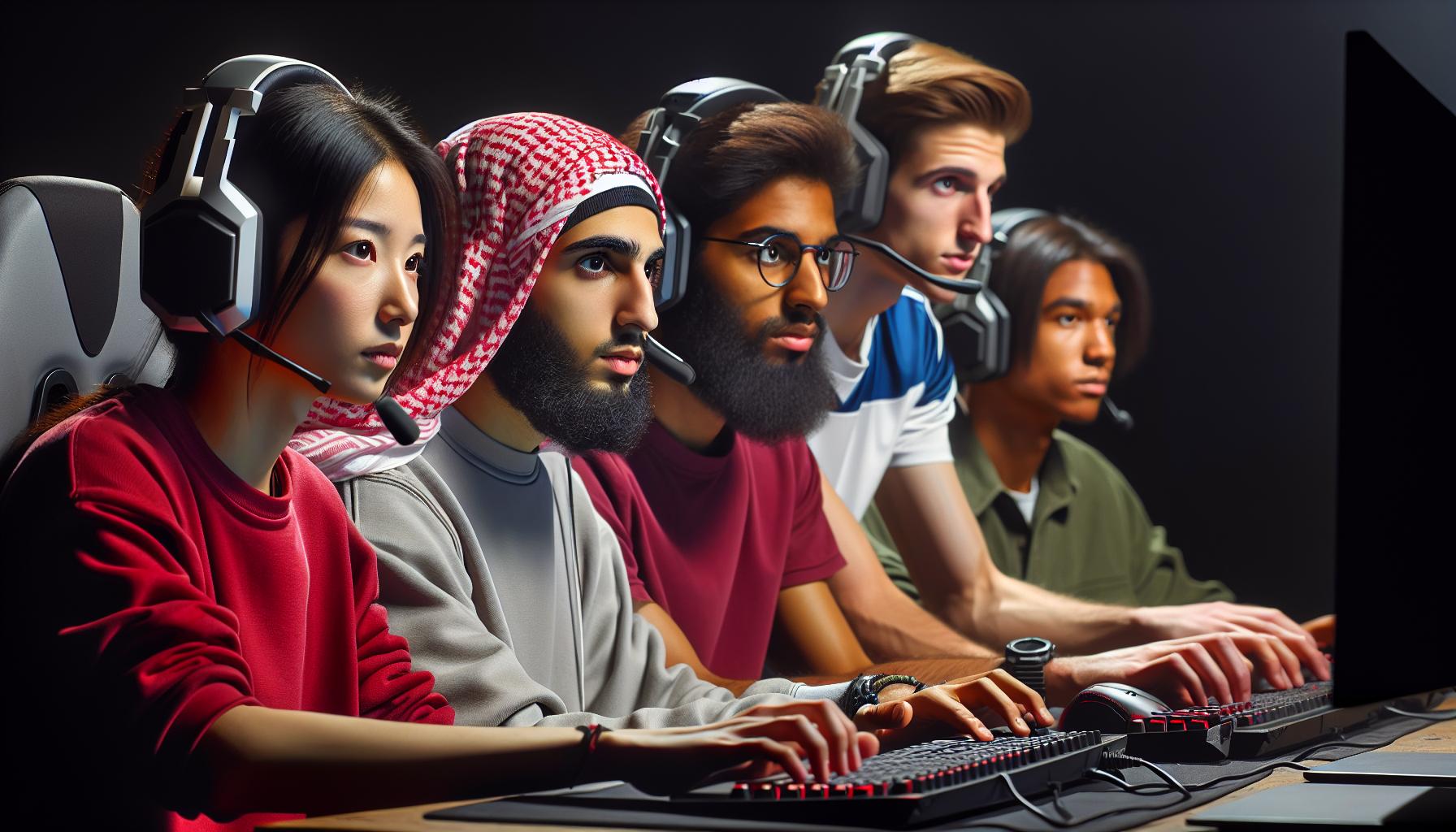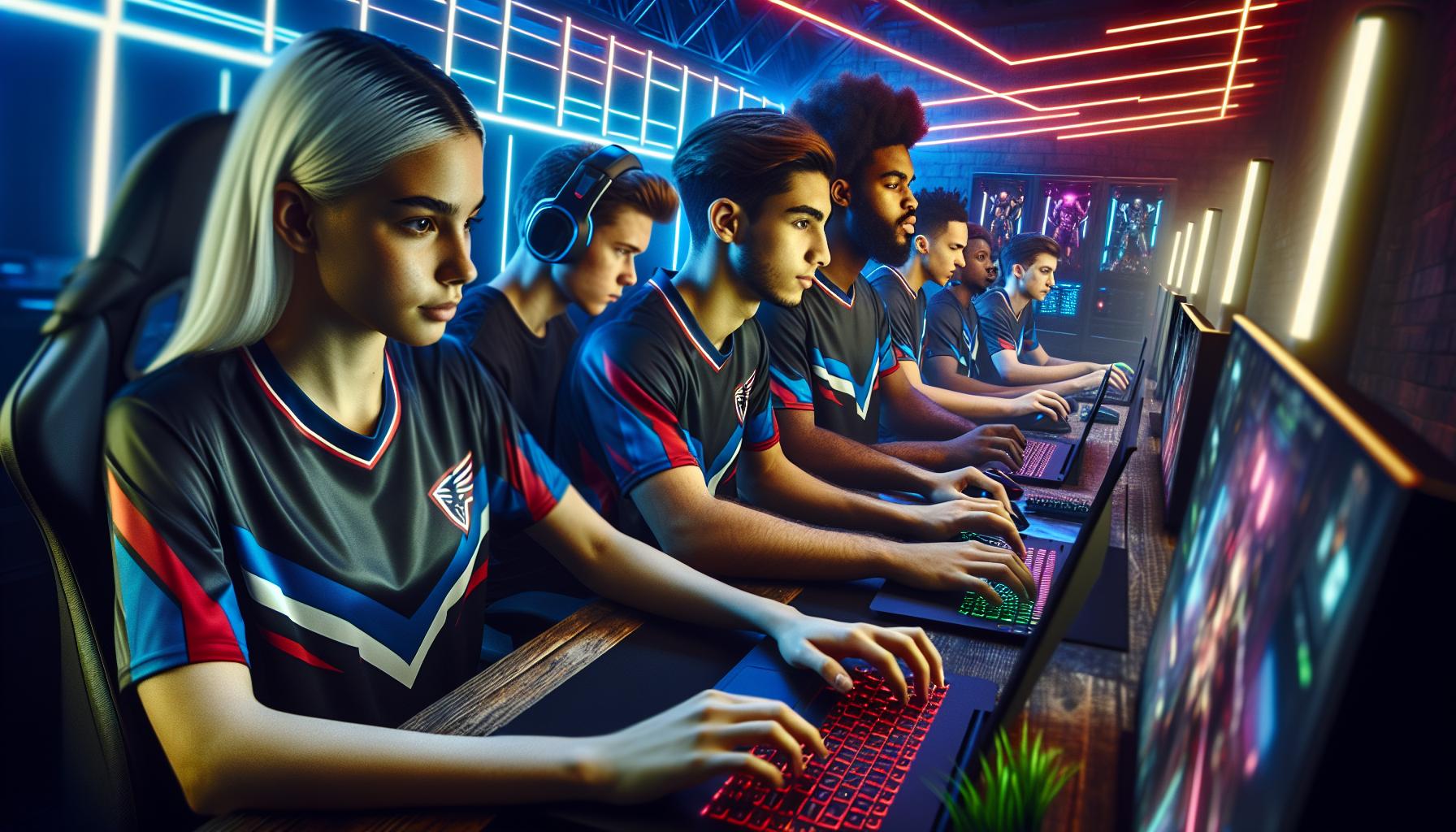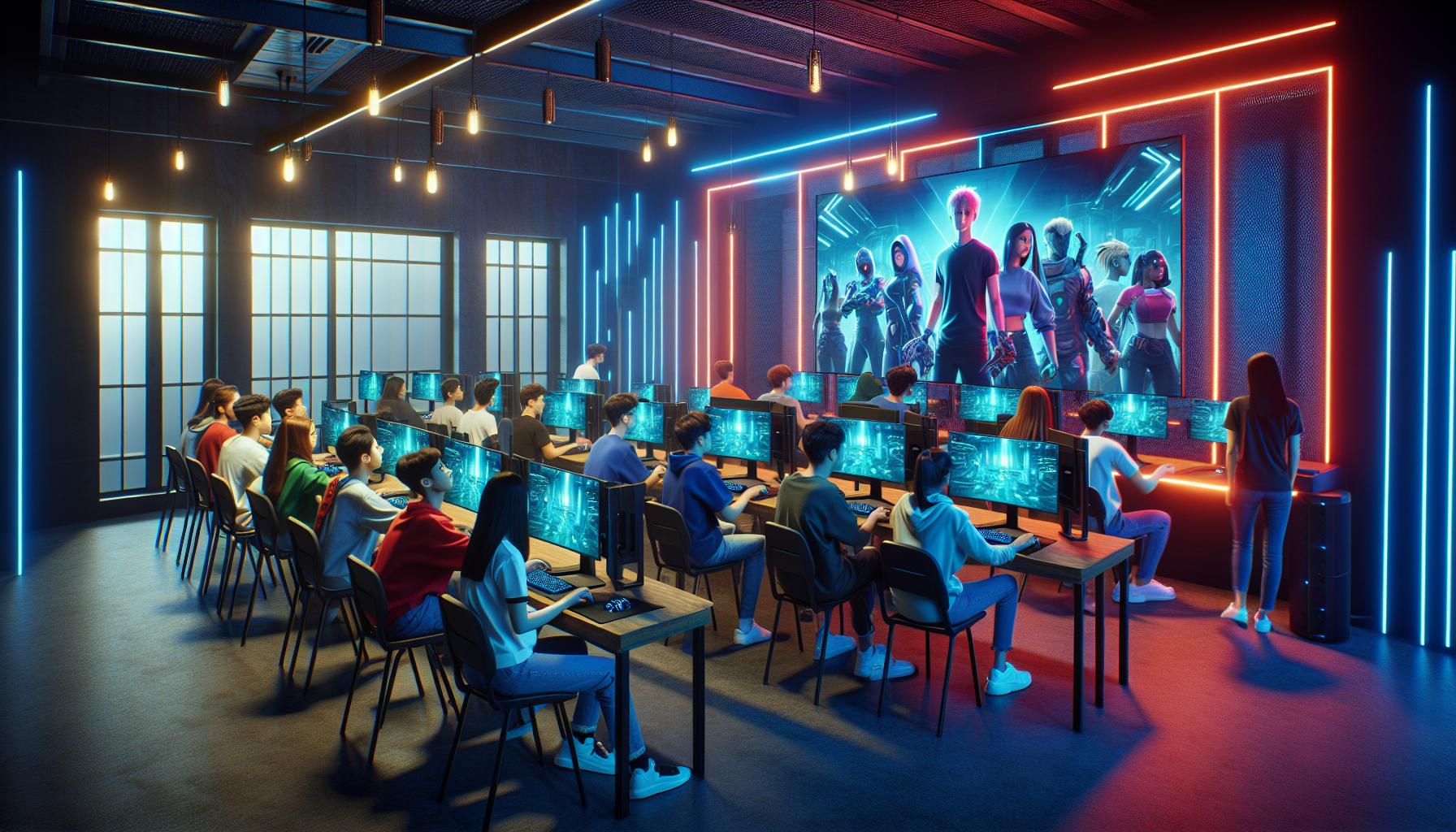As a passionate gamer and an avid follower of the esports scene, I’ve watched college esports teams rise to prominence in recent years. These teams aren’t just playing for fun; they’re competing at a level that’s capturing the attention of fans and sponsors alike. The blend of strategy teamwork and skill creates an exhilarating atmosphere that mirrors traditional sports.
Colleges across the country are investing in esports programs, recognizing the potential for scholarships and career opportunities in this booming industry. Whether it’s League of Legends or Overwatch, these teams are fostering a new generation of gamers who are not only honing their skills but also building community and camaraderie. Join me as I delve into the world of college esports teams and explore what makes them a vital part of the gaming landscape today.
Key Takeaways
- Rising Popularity: College esports teams have gained significant traction, drawing attention from fans and sponsors, similar to traditional sports.
- Scholarship Opportunities: Many colleges now offer scholarships for skilled gamers, recognizing esports as a legitimate pathway for education funding.
- Skill Development: Participation in college esports improves critical skills such as teamwork, communication, time management, and strategic thinking.
- Community Building: These teams foster camaraderie and friendships among players, creating a supportive environment that enriches the college experience.
- Challenges Present: Improper funding and balancing academic responsibilities with gaming commitments are significant challenges faced by college esports teams.
- Future Growth: The number of college esports programs is rapidly expanding, with potential partnerships and investments promising to shape a bright future in the esports landscape.
College Esports Teams
College esports teams are an integral part of the gaming culture on campuses. These teams provide students with opportunities to engage in competitive gaming while pursuing their education. Colleges are establishing multiple esports programs, enhancing student engagement and enriching campus life.
Colleges are forming teams across various popular games like League of Legends, Overwatch, and Valorant. These titles attract a diverse group of players who contribute to a competitive environment. Teams often compete in local and national leagues, showcasing their talents on larger platforms.
Scholarships for esports players are gaining traction, allowing institutions to attract skilled gamers. Schools are offering financial incentives to compete, creating pathways for students interested in gaming careers. This shift recognizes esports as a legitimate avenue for scholarship funding and recognition.
Community building plays a vital role in college esports teams. Groups of students come together to practice, strategize, and participate in tournaments. These experiences foster camaraderie, help develop teamwork skills, and build lasting friendships.
College esports teams also provide valuable experiences that extend beyond gaming. Students acquire skills such as leadership, communication, and time management, all of which are crucial in today’s job market. Moreover, internships and career opportunities in the esports industry are increasingly available, furthering the appeal of participating in these teams.
Overall, college esports teams contribute significantly to the evolving landscape of competitive gaming, offering students unique opportunities for personal growth, community involvement, and career development.
Benefits Of College Esports Teams

College esports teams offer numerous advantages, significantly impacting players’ personal and academic growth. They promote skill development and enhance team-building experiences.
Skill Development
College esports programs cultivate various skills vital for success. Players enhance their strategic thinking through analyzing game mechanics and opponent strategies. They gain technical skills, mastering game systems and software tools, which are transferable to numerous industries. Critical communication skills improve as players coordinate and discuss strategies during competitive play. Additionally, time management skills are developed as students balance gaming commitments with academic responsibilities.
Team Building
College esports teams foster a strong sense of community among players. Collaborating in games strengthens teamwork through shared goals and collective problem-solving. Friendships formed in practice sessions and competitions create a supportive environment for personal growth. Through team-building activities, members develop trust and camaraderie, which enhances overall performance. This network of peers encourages a positive social experience, making college life more enriching.
Challenges Faced By College Esports Teams

College esports teams encounter several challenges that can hinder their growth and success. Addressing these obstacles is crucial for fostering a thriving competitive environment.
Funding Issues
Funding issues significantly impact college esports teams’ development. Many institutions struggle to allocate sufficient resources for program expansion and operational costs. Limited budgets can restrict opportunities for equipment upgrades, facility improvements, and travel expenses for competitions. Competing against well-established athletic programs often places esports teams at a disadvantage. Scholarships for skilled players can alleviate financial burdens, yet many colleges still lack comprehensive funding strategies. Effective partnerships with sponsors and local businesses can provide valuable financial support and promote sustainability in esports programs.
Balancing Academics And Gaming
Balancing academics and gaming presents a substantial challenge for college esports athletes. Students must manage rigorous academic schedules while dedicating hours to practice and competition. The intense time commitment required for training can lead to stress and affect academic performance. Establishing effective time management strategies is vital for players seeking to excel in both realms. Some institutions implement study tables and academic support tailored to esports athletes, helping them maintain their academic standing. Prioritizing education while cultivating gaming skills is essential for personal development and long-term success in esports.
The Future Of College Esports Teams

College esports teams are on the rise, showcasing immense growth and opportunities. With increasing recognition of their value, it’s crucial to examine the emerging trends and potential collaborations shaping the future landscape.
Growth Trends
Growing interest in college esports reflects broader gaming trends. As a result, over the last five years, more than 30% of colleges in the U.S. launched esports programs. This expansion includes investments in state-of-the-art facilities and resources, preparing players for competitive play. Major tournaments regularly draw thousands of viewers, further increasing visibility for college programs. Additionally, the National Association of Collegiate Esports (NACE) now represents over 250 schools, highlighting the legitimacy and competitiveness of college esports. Scholarships are also on the rise, with institutions offering awards that can exceed $10,000 annually. Such advancements signal a promising trajectory for college esports teams and elevate their standing within higher education.
Potential Partnerships
Building strategic partnerships enhances the growth of college esports. Collaborations with gaming companies provide access to resources, sponsorships, and promotional opportunities. Universities can partner with local businesses to host events, attracting community engagement and increasing awareness. Additionally, joining forces with established esports organizations allows colleges to gain insights into best practices, player development, and operational strategies. These associations can also lead to internships, giving students hands-on experience in the gaming industry. By leveraging partnerships, college esports teams can secure funding, foster talent, and elevate their programs in competitive gaming.
Landscape of Higher Education
College esports teams are reshaping the landscape of higher education. They’re not just about competition; they’re about building communities and fostering essential life skills. As these programs continue to grow they offer students unique opportunities to blend passion with education.
The rise of scholarships and institutional support is a game changer for aspiring gamers. With more colleges investing in esports the future looks bright for players seeking to make their mark both in gaming and their academic pursuits.
While challenges remain the trajectory of college esports teams is undeniably positive. I’m excited to see how these programs evolve and the impact they’ll have on the next generation of gamers and professionals.